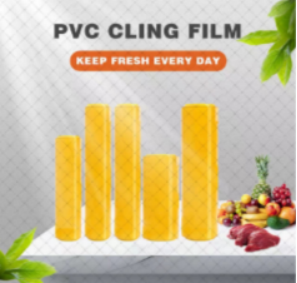cast polypropylene film
The Versatility of Cast Polypropylene Film An In-Depth Exploration
Cast polypropylene film (CPP) is a remarkable material that has gained significant traction in various industries due to its unique properties and versatility. As a type of thermoplastic film produced by the cast extrusion process, CPP is widely used in packaging, lamination, and insulation, owing to its outstanding characteristics. This article delves into the various attributes, applications, and advantages of cast polypropylene film, underscoring its importance in modern manufacturing and packaging solutions.
What is Cast Polypropylene Film?
Cast polypropylene film is created by melting polypropylene pellets and extruding them through a flat die, resulting in a thin film formed on a casting roll. This process allows for the efficient production of films with uniform thickness and excellent optical clarity. Unlike biaxially oriented polypropylene (BOPP), which is produced through a stretching process that enhances its strength and barrier properties, CPP maintains a more flexible nature, making it suitable for a range of applications that require pliability.
Key Properties of Cast Polypropylene Film
1. Transparency and Clarity One of the most distinguishing features of CPP is its high clarity. This optical property makes it an ideal choice for applications where visibility and presentation are crucial, such as food packaging and decorative laminates.
2. Flexibility and Softness CPP is inherently soft and flexible. This quality allows it to conform easily to various shapes and surfaces, making it perfect for applications that require a snug fit, like wrap-around labels and food containers.
3. Chemical Resistance CPP exhibits excellent resistance to a wide range of chemicals, including oils and greases. This makes it suitable for packaging products that may come into contact with harsh substances, enhancing shelf life and integrity.
4. Heat Sealability The film can be easily heat-sealed, which is a crucial factor in packaging applications. The ability to form strong seals without compromising the integrity of the film is beneficial for manufacturers looking for reliable packaging solutions.
5. Moisture Barrier Properties While not a perfect barrier against moisture, CPP generally provides better moisture resistance than other films, thereby helping to preserve the freshness of packaged goods.
Applications of Cast Polypropylene Film
cast polypropylene film

The applications of cast polypropylene film are numerous and diverse
. Here are some of the most common uses- Packaging CPP is extensively used in the packaging industry for products such as snack foods, bakery items, and confectionery. Its clarity and flexibility provide an appealing presentation while ensuring product protection.
- Lamination The film is often used as a protective layer in lamination processes. It enhances the durability and aesthetic appeal of printed materials, making it popular in marketing and branding.
- Labels Due to its conformability and printability, cast polypropylene film is widely utilized in label production. It can be printed with vibrant colors and detailed designs, ensuring that labels stand out while maintaining their adherence.
- Medical and Hygiene Products CPP is also employed in the medical field for packaging sterile goods. Its barrier properties help maintain sterility and protect against contamination.
- Insulation In the electronics industry, CPP can be used as an insulating layer in various components, benefiting from its dielectric properties.
Environmental Considerations
With the growing awareness of environmental issues, the sustainability of materials like cast polypropylene film is increasingly scrutinized. While traditional polypropylene is a petroleum-based product, advancements in recycling technologies are paving the way for more sustainable practices. Efforts are underway to develop biodegradable versions and improve the recycling processes for polypropylene, aiming to reduce its environmental impact.
Conclusion
Cast polypropylene film is a versatile material that has made significant contributions to various sectors, especially in packaging and labeling. Its unique properties, including flexibility, clarity, and chemical resistance, make it an ideal choice for manufacturers striving for quality and efficiency. As technology evolves and sustainability becomes a pressing concern, the future of CPP looks promising, with innovations that may further enhance its performance and reduce its environmental impact. With its impressive range of applications and continuing evolution, cast polypropylene film remains a cornerstone of modern manufacturing and packaging solutions.
-
The Best Uses for Small Trash Bags in Daily LifeNewsJul.01,2025
-
Stylish Reusable Grocery Bags TrendsNewsJul.01,2025
-
Shipping Advantages of Using Bubble Envelopes BulkNewsJul.01,2025
-
How Compostable Mailing Bags Reduce Environmental ImpactNewsJul.01,2025
-
Environmentally - Friendly Bulk Poly MailersNewsJul.01,2025
-
Eco Friendly Custom Laminated Tote BagsNewsJul.01,2025
-
Have the freedom of customizing your custom mailers any way you want! Our dedicated packaging support will help deliver you the mailing experience you need to elevate your shipping experience to the next level! Start making a strong impression on your customers and stand out from your competitors! -
LIYA uses high quality raw materials which directly purchased from large enterprises domestic and overseas such as PetroChina, Sinopec, Sabic, Equate, ExxonMobil, Dow Chemical, Total, and Borouge, ensuring the price advantage and quality of the raw materials. -
LIYA uses high quality raw materials which directly purchased from large enterprises domestic and overseas such as PetroChina, Sinopec, Sabic, Equate, ExxonMobil, Dow Chemical, Total, and Borouge, ensuring the price advantage and quality of the raw materials.





